...which is actually in Wiscasset, not Bath Note: this story originally appeared on Penobscot Bay Pilot. WISCASSET—Ironically, Wiscasset’s first brewery is named after the nearby town 10 minutes away, but there’s a story for that. On Route 1, opposite from the Shaw’s Supermarket, Bath Ale Works, co-owned by Pepper and Jean Powers opened its brewery and taproom Memorial Day Weekend. Powers, who arguably has one of the coolest brewer’s names ever, said, “We had the idea to open up in Bath several years ago, but we never found the right building at the right time, and then when we did, we waited two years to move into a building that ultimately never got built.” Powers, who has home-brewed since 1993, decided to set his sights on the property at 681 Bath Road, a division of the adjacent Family Dollar Store. “The Midcoast has a rich, maritime heritage with shipbuilding, not just with Bath Iron Works, and we wanted the brewery name to reflect that kind of Midcoast nautical feel,” he said. The vacant building was a challenge to transform. When other tasting rooms were shut down due to the social-distancing and capacity mandates last year, Powers and his crew used the time to build out the entire brewery, including a cold storage room, a lab, and a serving cooler. “For everyone else, it was a hard time, but for us, the timing was a blessing in disguise,” he said. The spacious taproom doesn’t have the deliberately industrial feel as many Portland breweries do, but it feels like there’s a lot of room to spread out. It offers numerous multiple sitting areas for parties of two and four, a game shelf, and a central bar. It is kid- and dog-friendly and patrons are welcome to bring in their own food. On weekends, the confidently-named food truck “Shut Up and Eat It” is parked in the lot, serving homemade chili corn dogs, wings, pizza, and other pub-style food. “Sometimes I have to explain to customers what the food truck name means— that I’m not yelling at them,” joked taproom manager Tanya Gamache. The taproom also offers “Galley Boxes,” which are mini Ploughman’s lunches with cheese, meat, bread, pickles and roasted nuts. Powers, who favors traditional English and Continental styles, brews two days a week. Currently, the Down Easter Pale Ale, their flagship beer is a lightly-hopped, well-balanced brew and the Shakedown Cruise Ale (which is 8.1% ABV but you’d never know it given its light, floral taste). But his Steel Cutter Stout, named after common work activity at Bath Iron Works, is worth exploring. Even beer lovers who tend to gravitate to the lagers and lighter beers will appreciate this clean, tasty black ale. One sip and a cascade of flavors hit the palate finishing with a“nicely roasted barley bite.” This summer, Bath Ale Works, is building out its courtyard behind the taproom, set in a heavily wooded and secluded area, where patrons can enjoy a brew with family or friends and play cornhole. They’re hosting their first cornhole tournament coming up Friday, June 18. More info can be found at the Bath Ale Works website and Facebook page. Kay Stephens can be reached at [email protected]
0 Comments
Note: my story originally appeared on www.penbaypilot.com
Ten months ago, Maine’s brewing industry came to a screeching halt the day after one of the biggest beer-drinking days of the year, St. Patrick’s Day, when the novel coronavirus pandemic prompted Governor Janet Mills to issue an Executive Order on March 18, 2020 to close all bars and restaurants for a period of 14 days. Back then, for many at the beginning of this unknown pandemic, the assumption was that breweries, bars, and tasting rooms would eventually re-open and it would be business as usual. But, on March 31, when Mills issued the Stay Healthy at Home directive that required Mainers to stay at home at all times unless venturing out for necessary purposes, the brewing industry—like so many other industries in Maine, saw the writing on the wall. Since the spring, breweries with restaurant service fared a little better. They were able to re-open for indoor service, while breweries with take-out options and outdoor seating were able to capture some of the lost revenue during the summer, but as of November 1, with COVID-19 cases on the rise in Maine, Mills issued a mandate to postpone the opening of indoor seating at bars and tasting rooms. Lowered excise tax law boosts cost savings for breweries, beer lovers The industry got a shot in the arm with a new law announced in late December that permanently lowers excise tax for brewers, according to the office of U.S. Senator Susan Collins, who, along with Senator Angus King, and a bipartisan group of 55 colleagues, championed for the law in order to help breweries —and their brewing supply chains—stay open. Given that Maine has the highest excise tax for beer in New England at $.35/gallon, this came as welcome relief to brewers already cash-strapped from the pandemic. Maine leads the nation when it comes to the recent rapid growth of its beer industry. In 2018, the industry added $2 billion to to Maine economy, according to a study jointly issued by the Beer Institute and National Beer Wholesalers Association. That year, Maine’s beer industry added 15,531 jobs, paying a total $595,273 in wages. – Economic Impact of the Beer Industry “In Maine, we have one of the highest state excise tax rates, almost triple some of the New England states,” said Sean Sullivan, executive director the Maine Brewers Guild. “Add that to the production challenge of switching to predominantly canned beer, as well as shortages of aluminum cans, these were additional trends hurting the industry.” In 2017, the American craft beverage industry got a break when a temporary federal law lowered the excise tax of $7 per barrel to $3.50 per barrel, which was set to expire on December 30, 2020. “The risk was that as of January 1, that federal excise tax rate was going to go back up to $7 a barrel,” said Sullivan. “More than 25 breweries opened during the last three years that had never paid that amount per barrel, and hadn’t factored that into their costs. Picture yourself as a brewer, heading into a winter where you didn’t have a good economic summer, and then all of a sudden your taxes go up twice the amount you’re used to paying on each barrel.” “Maine’s beer industry has been on a growth trajectory for years,” said Sullivan. “Maine brewers produced about 365,000 barrels of beer in 2019, which equates to about $1.25 million in revenue. So, to break it down, as of the beginning of 2021, either $1.25 million was going to remain in Maine for breweries to re-invest in their business, or else it was going to go to the federal government in the form of excise tax, if tax rates were raised back to $7 per barrel.” Maine brewers come together as one brand to collaborate on brew recipe Liberator Brewing Co. is brewing the Collaboration Beer 2020 and owner Rich Ruggerio said, “It should be available on tap near the end of January.” Another spot of good news for an industry known for its tight and collaborative communities in all of Maine’s eight regions was the decision to create a Collaboration Beer 2020. Thirty-nine breweries all over the state, including Liberator Brewing Co., in Rockland, and Waterman’s Beach Brewing, in South Thomaston, received the same donated hops, malts, and grains and one recipe to work off. The result of that effort turned into 39 brews, all under one label, each a slightly different flavor based on how they used their own yeast, base malts, and brewing techniques. Proceeds from the beer have not generated some much-needed profit for the industry, but have also gone back as donations to bolster the Maine Brewers’ Guild. “I’ve tried so many versions of this beer,” said Sullivan. “It’s remarkable how different they taste. I think this Collab Beer is a beautiful example of what makes our industry so special. Amidst the commonality of brewing beer, even often the same style, there is infinite diversity. Wherever you are in Maine, look for this label and check the back for which brewery brewed the beer. ” For a list of breweries that participated visit Brewbound.com Former employee of Marshall Wharf Brewing Co. and wife bring Belfast business back to life2/18/2020 BELFAST—The sound of construction can be heard in and around the two buildings that comprise Marshall Wharf Brewing and Three Tides these days.
It’s business as usual for builder Daniel Waldron, co-owner of Whitecap Builders; but he isn’t just working on the buildings. He and his wife, Kathleen Dunckel, recently purchased the brewery building and property prior to a public auction on January 29. They also purchased the brewery business and Three Tides business. As a former employee of Three Tides and Marshall Wharf Brewing, Waldron couldn’t get the brewery off his mind. It had abruptly closed in April 2019 after floods over the previous winter had caused severe damage, according to an article in the Bangor Daily News. “I started seriously considering buying it last June,” said Waldron. As it got closer and closer to the auction, we kept thinking, ‘how can we make this happen?’” As a builder, Waldron eyed the buildings with a certain perspective that comes with the territory. “I fell in love with that brewery building when I was working here,” he said. “It was an old grainery and has been standing here on the Belfast waterfront since the late 1800s and the upper levels of the building have never been touched.” Rising tides, storm surge and climate change made the brewery extremely vulnerable to flooding, a calamity which destroyed a substantial amount of the hard work done by original owners David and Sarah Carlson. According to BDN, a one-two punch in the winter and spring of 2019 in the form of floods wiped out their stainless steel tanks that contained finished beer and then took out more smaller tanks two months later. To be viable as a brewery in the long run, Waldron said the entire building needs to be jacked up approximately eight feet from the current first floor elevation. “It’s been there so long it’s sinking,” he said. “Currently, the first floor of the building is 38 inches below the sea wall. We just need to get it jacked up on piers, out of the ocean’s way.” “We do this every day,” he said, of the construction. “For me, the immediate challenge is getting the brewery and restaurant back up and running again.” Waldron, who has been in the restaurant business 20 years as a supplement to his construction work, served as a Three Tides bartender. Dunckel is a professor at Unity College. With three children, the couple is spending every available moment to bring back the beloved brewery and bar to the way people remember it. At the time of this interview the couple had a verbal agreement to lease the Three Tides property from the current owner with intent to purchase it in the future. “The feedback we’ve heard has been so positive and a lot of what we’re hearing is: ‘We miss Three Tides and Marshall Wharf Brewing. We want our place back.’ And we want to give it back to them.”—Kathleen Dunckel As for Three Tides, Waldron doesn’t need to do anything drastic. “The kitchen needs some new equipment a potential expansion, but we’re planning on leaving it mostly the way it was,” he said. The couple said they are working toward a spring re-opening while they work on planning, engineering and a slew of city, state and federal permitting applications for the major rehabilitation of the brewery building. “We’ve got protections in place for flooding right now,” he said. “We’ll operate out of both spaces, until all the permits are in place and then the brewery will need to shut down again and brew offsite, so we can jack the building up.” The Belfast community has expressed an outpouring of excitement toward the re-opening. “David and Sarah were super supportive and the community has been off the hook since we posted the plans on Facebook,” said Waldron. “Other restaurants and brewers, such as Danny McGovern, have also reached out and given us their support.” Jared Mahrunic, MW’s head brewer, is returning to restart the brewery. One of the biggest questions the couple is getting is: “Will the same beers come back?” The answer is yes. “Everything will still be branded Marshall Wharf and all of the beers that people love will be coming back,” said Waldron. “We’re honing in on what Marshall Wharf already does well.” He said: “We’re not quite sure what capacity we’ll offer food yet It’ll be light fare, tapas to start.” As for entertainment, Marshall Wharf Brewing has always served as an anchor for the major Belfast music festivals and harbor parties. “I think that’s definitely on the horizon,” said Dunckel. “We’ve already been contacted by bands and my take on that is that it’ll be a soft, subtle start as we get going,” said Waldron. “But the music side has always been a big thing for us. If we revive anything for now, it’ll probably be the Marshall Wharf beer and mussel festival in October, depending on how much beer we have available then.” Basically, Belfast is getting the same brewery they’ve always loved back. “Coming here after work in July or August and grabbing a pint and seeing the people you work with, people in your community and tourists hanging out, enjoying the sun down in the Three Tides beer garden on the harbor — this place has always felt like an old English pub,” said Waldron. “That’s how it’s going to be again.” Kay Stephens can be reached at [email protected] UNITY— Walking through meadows of apple trees, and by clusters of wildflowers and sculptures, I entered the grounds of the Maine Organic Farmers and Gardeners Association in Unity on Saturday, August 17 intent on one thing: drinking beer and eating bread.
MOFGA’s first Bread and Brews Festival did not disappoint, drawing nearly 200 people from all over the state. I’ve been to many brew fests around the state, but this one felt small and intimate with 11 breweries in the main area of the Common Ground Education Center “We heard from many of the brewers that they appreciated how small this was,” said Torie DeLisle, MOFGA’s Director of Development and Membership. “One of the brewers told us that at the large scale brew festivals, they often feel like they are just processing orders, whereas at this festival, they got to really had time to talk about their beer and ingredients with people who were very interested. So, they felt that they got some real interaction with the participants.” Co-sponsored by the Maine Grain Alliance, the festival highlighted the many ways that Maine-grown grains are enjoying a renaissance in Maine, in both baking and beer. Many people didn’t know until they came to the festival how much the farmers, bakers, businesses and brewers all collaborate and intersect, using Maine grains in a variety of ways. For example, many brewers are sourcing their fermentables—barley, rye, wheat and oats—locally, rather than import from gristmills and farms out of state. See my 2017 related story below. “The connection between farmers of Maine-grown grains and brewers has really deepened over the years,” said DeLisle. “To give you one example, one Maine brewer who came here, buys the grains from the farmer and runs it through the system to make the beer. When the grains are spent, the brewer then send them to a baker, who uses them in a special beer bread, so you have this full circle process—definitely a collaboration we’re trying to foster.” The festival was also different from a typical beer tasting in that there was an educational component with multiple demos and workshops in both baking and brewing. Eli Rogosa, founder of Heritage Founder Conservancy, was one such notable presenter, who gave a workshop on “A Taste of Ancient Grains.” A renowned “seed steward” and author, Rogosa traveled the world to collect rare and ancient wheat species, called landrace wheats, which were on the verge of extinction when she brought them back to the United States. These heritage wheats are far superior in proteins and nutrients than commercially processed wheats and tend to grow exceedingly well in Maine’s short growing season. “We were lucky to have people like Eli and other key people in Maine who are at the forefront of the grain revolution giving classes and baking bread with the participants,” said DeLisle. “We have a wood-fired oven and were kicking out wood-fired bread all night.” And those who chose to stay the night and set up their tents on the grounds were treated to a “breads and spreads” breakfast Sunday morning. Beyond that, the festival offered food trucks, live music, samples from other vendors and for lack of a better word, a pretty organic experience. Based on the success of this festival, DeLisle says there’s already plans int he works for a 2020 festival. “We may not make it too much bigger, but will round it out even more,” she said. “Our ongoing role is to create an educational experience that helps brewers connect with Maine growers. We’re even starting to have a conversation about creating a MOFGA-inspired organic beer for next year.” Now, I’m pretty sure I’m not the only one after drinking all that beer and eating all of that bread to think: “Time to jump back on that diet tomorrow.” “We were joking that maybe we should probably start out the day with a 5K run,” said DeLisle, laughing. “We’ll see: stay tuned.” For more information on future MOFGA events visit: MOFGA Kay Stephens can be reached at [email protected] BELFAST—A new brewery has quietly opened in Belfast, but unlike most hyper-local rural breweries, Frosty Bottom Brewing is choosing to operate not as a public tasting room, but as a “brew share,” similar to the Community Supported Agriculture model of farm shares and fish shares that currently enjoy a popular following in the Midcoast.
Roy Curtis is the owner of Frosty Bottom Brewing, with friends and shareholders Zafra Whitcomb and Jon Thurston helping him brew. All three were individual home brewers who enjoyed getting together as sort of an informal club and experimenting with a variety of styles before Curtis started the company this year. Frosty Bottom Brewing’s rough-sawn pine brewery and tasting room sits at 18 Hunt Road in Belfast adjacent to Curtis’ house, which he built with friends using a stand of pine that was specially reserved for the brewery located on Frost Hill Road. For that reason, “Frost” was incorporated into the name as well as the logo. In addition, Curtis built an apartment over the tasting room that he intends to rent out in July as a unique Airbnb listing calling it “room with a brew.” Downstairs, half of the structure is the “brewing side” with a one-barrel brewing system that produces 30 gallons when they brew every two weeks. “Ultimately, our goal is to have 60 gallons each month,” said Curtis. The company’s model was born out of a hobby and aims to remain a hobby; that is, the purpose of the brewery is to generate enough product to sell to shareholders, who pay an annual fee and get in return, a growler (one gallon) of two different brew style each month—or 24 styles annually. In addition, every shareholder has the privilege of stopping by the semi-private tasting room for an exclusive free tasting of whatever the brewers are currently making. Right now, the brewery has sold all of its 2019 shares, primarily to friends and family, many of whom, helped to construct the brewery. “We’re excited to try brewing new styles we’ve never done before and the ideal shareholder will be someone who is open to trying absolutely everything,” said Thurston. While the CSA model for brewing isn’t new in other parts of the country, it is unique in Maine. Only one other Maine brewery has adopted this model. Side by Each Brewing in Lewiston, also offers a Community Supported Brewing program. As both Curtis and Whitcomb are both currently employed full time and Thurston is retired, they aren’t looking to expand much more beyond this original goal, until the time is right. Given their limited license with the city of Belfast, the brewery cannot sell beer at its tasting room location, but may only offer free samples to those in their shareholder program. For interested parties in a brew share, Curtis said he’s always willing to give a mini tour of the facilities when it works with his schedule and that those looking to sign up for a brew share may email him for consideration on the 2020 list. “When we open up shares for 2020, we’re hoping to take on 40 shareholders,” said Curtis. “Forty of the gallons will be for them and the other 20 gallons per month will be for tastings.” “Waldo county is pretty rich with the CSA-movement and brewing for us is very connected to local agriculture,” said Curtis. Along with using hops from Thurston’s farm, the brewery buys Maine grains from Blue Ox Malthouse and once the grain is spent, it is fed to local pigs. “And the brewery is really an outgrowth of the community-supported model,” he said. “As home brewers we all shared in the cost and labor to make a product, so this is really an outgrowth of that.” For more information visit Frosty Bottom Brewery on Facebook. Kay Stephens can be reached at [email protected] ROCKLAND—This past November, Ada’s Kitchen Bar Manager, Stacy Campbell, was invited to Portland,Oregon, during Portland Cocktail Week, to learn the latest trends in Event Management and mixology.
“There were 20 purveyors of every kind of alcohol you could imagine, but at one point, I was offered a non-alcoholic Negroni,” she said. “I tried it and had to ask again, ‘is this non-alcoholic?’ It was awesome!” (Side note: Ada’s Kitchen is sort of know for their Negronis, as our last PenBay Pilot story “What’s In That Cocktail” attests.) While bars have always offered a non-alcoholic choice of beverage, in Maine, the non-alcoholic craft cocktail, or mocktail, trend had to originate with Vena’s Fizz House in Portland, Maine, which debuted the botanical-infused mocktail when it opened in 2013. After Campbell got a taste of the flavorful non-alcoholic spirits in Portland, Oregon, she began to imagine its possibilities at Ada’s Kitchen. “First of all, I have a lot of friends in AA (Alcoholics Anonymous), who would like to come out to a bar and be social, but have the option of ordering something that’s non-alcoholic and good, ” she said. “I put out a short survey on my Facebook page asking if people would be interested in mocktails and within a short period of time I had more than 100 comments saying yes.” Apart from the typical seltzers and juices, Campbell knew, after what she’d tasted in Portland, they were going to need to up Ada’s game. “The botanical non-alcoholic spirit in the Negroni I tasted in Portland is called Seedlip and it is different from anything out there,” she said. “It’s more complex and and you can smell and taste the natural flavors that come through the distilling process.” Seedlip is a UK company that produces the distilled non-alcoholic spirits, based on herbal remedies published more than 300 hundred years ago by a physician named John French. The company, which produced its first batch using herbs and a copper still in 2015, became a international sensation, with iconic restaurants such as The Savoy, The Ritz and even Buckingham Palace vying for a bottle. Read more of their story here. A bottle of Seedlip is £27 or $35 and Campbell was able to purchase several for Ada’s Kitchen and have them shipped to Rockland. “Then I got to work, putting together a number of recipes that work best with the flavor profiles,” she said. The Garden Tonic is Ada’s best seller on the mocktail menu. Using Seedlip’s Garden 108, made from natural botanical distillates and extracts (peas, hay, Spearmint, Rosemary, Thyme, Lemon hops), the mocktail contains jalapeno, lemon and just a splash of Brooklyn-based Fever-Tree Tonic. “When you open the bottle, it’s this incredibly bright, fresh, smell,” she said. After she mixed the non-alcoholic spirit with the other drink’s ingredients, the visual result was like a garden in a glass with fresh basil, a long strip of cucumber and an expertly peeled coil of lemon rind swirled throughout. Given the complexity of the mocktail and its imported ingredients, it costs just slightly under what a cocktail would be priced (around $8-9), but then again, what you’re getting is the little black dress of mocktails, not just tonic from the gun and the plop of a lime wedge. “Right now, I’m trying to create our own version of the non-alcoholic Negroni,”said Campbell. The discovery of Seedlip has led her down the path of searching for other fizzy mixers and high-quality ingredients. “I found a soda from Italy that tastes just like a Campari. And now I’m working on trying to find something that approximates a Vermouth to complement that.” |
The Killer ConvoThis blog is a is a killer roundup of all arts, entertainment, brewery & distillery, food trucks, happy hour happenings in the Midcoast Maine. Feel free to email me anything about Midcoast arts, entertainment & the creative economy. Archives
June 2021
Categories
All
|
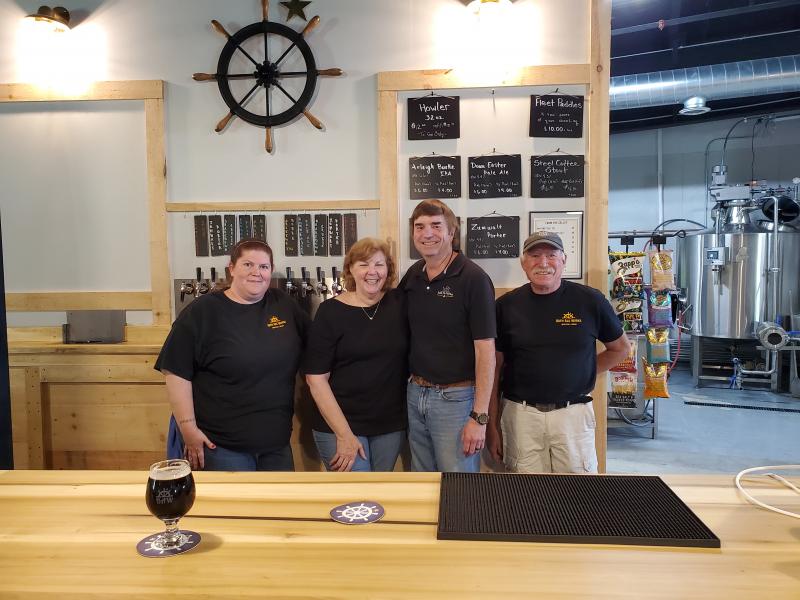
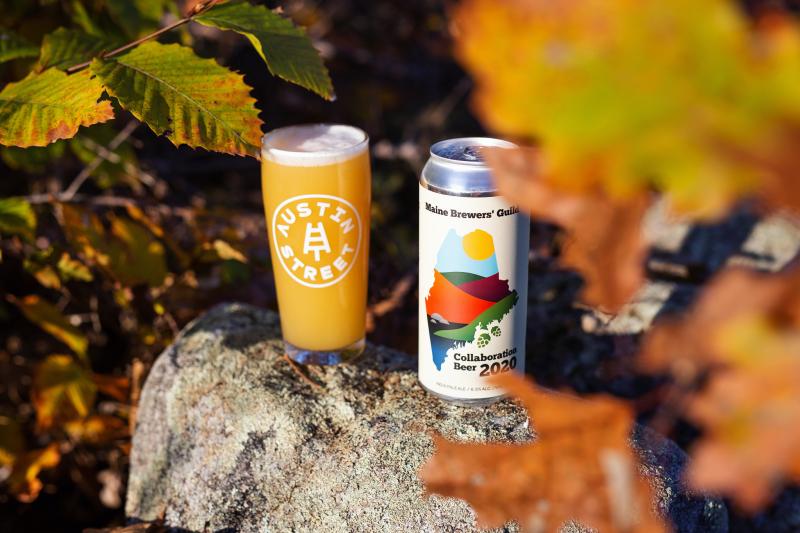

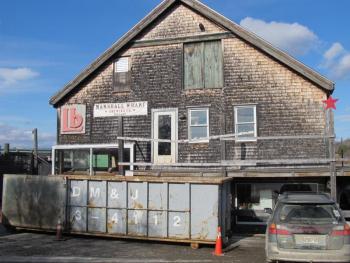
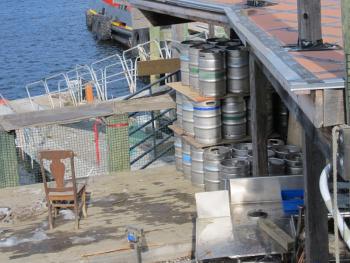
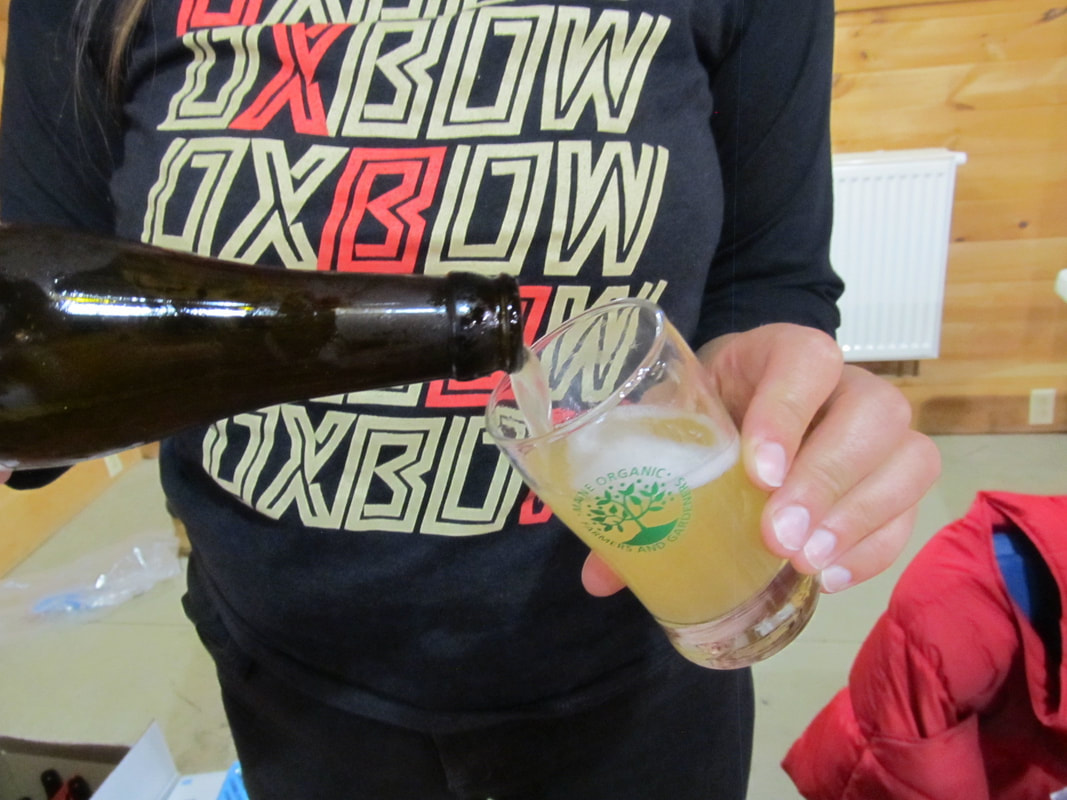
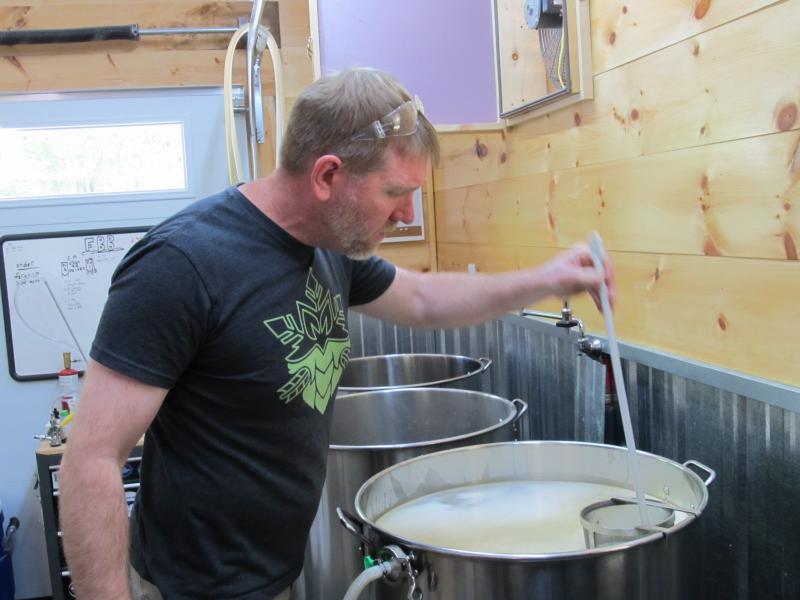
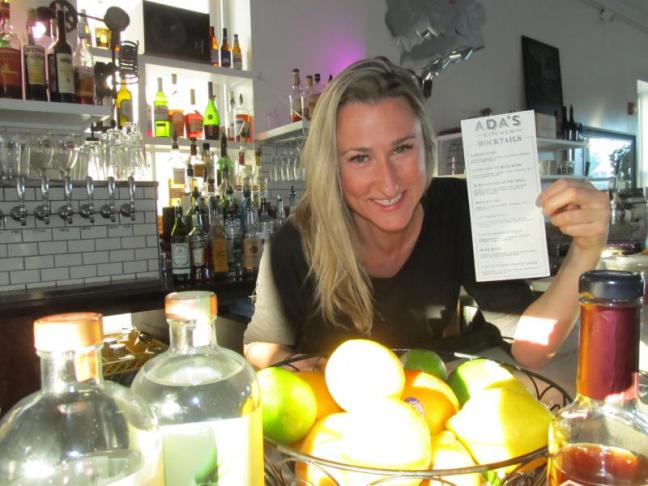

 RSS Feed
RSS Feed